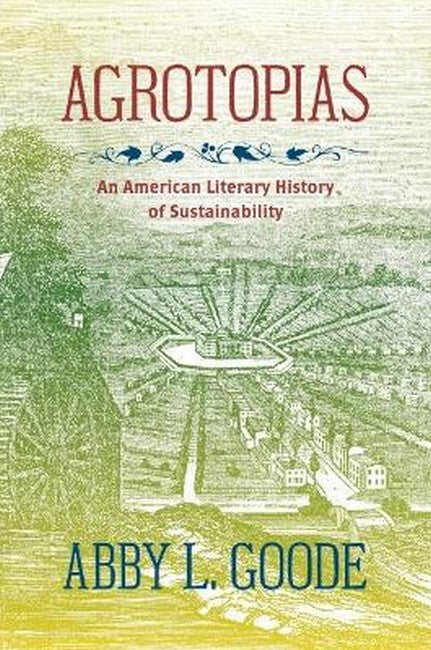Abby L. Goode is assistant professor of English at Plymouth State University.
Request Academic Copy
Please copy the ISBN for submitting review copy form
Description
Agrotopias is a rich and compelling study of how agrarianism was central to ideas of national and communal 'sustainability' during the long nineteenth century, and how its assumptions and values persist in sustainability rhetoric today."--ALH Review By adding Goode's analysis of sustainability rhetoric, it is possible to get a fuller picture of the ways nineteenth-century Americans made sense of their moment in time in order to make things better in the future. . . . Agrotopias shows readers that like the environmental movement, sustainability has a long history and one that has never been divorced from social problems and power dynamics."-American Historical Review A stellar argument . . . an ambitious, important intervention in sustainability rhetoric over a 300-year period."--ISLE: Interdisciplinary Studies in Literature and Environment A valuable contribution to understanding the history of American environmental thought through its literary output during the 19th and early 20th centuries. . . . Recommended."--CHOICE An important addition to a broader wave of scholarship . . . [that] provide[s] readers with an understanding of how the material, political, and cultural components of American agrarian thought took hold in nineteenth-century society."--H-Environment Compelling and astute. . . . [A] well-written, deftly argued, and much needed reconsideration of the development of nineteenth-century American agricultural and environmental imagination."--New England Quarterly In this important, well-executed study . . . Goode has chosen a fascinating combination of literary works to consider. . . . In her consistently striking readings of these texts, Goode traces the nuanced yet potent ways in which sustainability rhetoric (and its whole conceptual scaffolding) evolved from the Revolutionary Era through the Progressive Era."--Early American Literature Rich and compelling. . . . [A]n essential intervention into the history of US environmental thought, one that insists we reconsider the simple progressive goodness typically accorded to agrarianism and its legacies."--American Literary History

